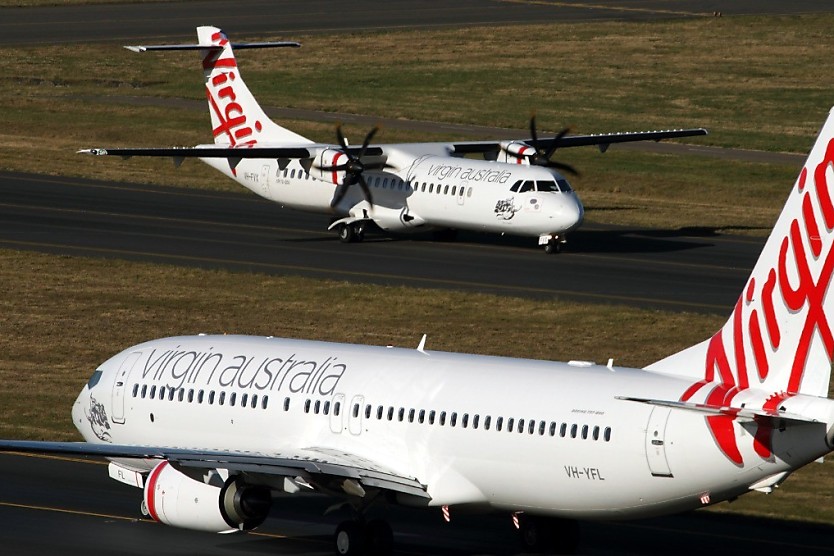Virgin’s appeal against decision to reinstate employee ‘not close to convincing’
SHARE THIS ARTICLE

Virgin Airlines Australia continues to push back against the Fair Work Commission’s (FWC) reinstatement of former cabin crew member Dylan Macnish, who allegedly broke the airline’s alcohol policy.
As previously reported on HR Leader, a former Virgin Airlines Australia cabin crew member, Dylan Macnish, was terminated from his employment after facing a litany of allegations from his employer, with the key accusation being that Macnish broke the airline’s “eight-hour rule”.
The “eight-hour rule” set out in Virgin’s A4 Manual states that a cabin crew should abstain from alcohol for a minimum of eight hours before commencing duty.
Macnish was dismissed after he consumed one glass of prosecco at a work Christmas party for Virgin before 2.30pm on Sunday, 17 December 2023, and then later signed up for a red-eye flight, meaning his shift commenced approximately 7.5 hours later.
Other allegations were brought forward by Virgin against Macnish in an attempt to warrant his dismissal. Commissioner Pearl Lim – who oversaw Macnish’s dismissal case – broke the allegations down one by one and labelled some as “mystifying.”
One of the allegations was that Macnish fabricated his need to access Virgin’s Fatigue Risk Management System. After a work shift that involved a medical incident, Macnish claimed that he was extremely fatigued and opted to remove himself from the roster for his shift the following morning.
After contacting the support team to change his shift, Macnish decided to use the Grindr app to meet someone for casual sex. In his evidence presented to Lim, he explained that having a physical interaction with someone would help him fall asleep.
Macnish met with the individual, they went to his hotel room, they had intercourse, and then he fell asleep shortly after. Virgin, however, became aware of this by accessing security footage with time stamps of the interaction, alleging that Macnish was lying about being fatigued.
Ultimately, looking over all the evidence, Lim found that Macnish’s dismissal was unfair and ordered Virgin Airlines Australia to reinstate Macnish by reappointing him to the position in which he was originally employed.
Virgin is granted an appeal
After the original decision was made by Lim, Virgin filed a notice of appeal for a stay within the 21-day window of the decision. This first appeal was overseen by FWC vice president Mark Gibian – who, after reviewing the collective evidence presented, decided not to grant a stay to Virgin.
Virgin has, however, applied for a second appeal to the Fair Work Commission, once again questioning Lim’s assessment of the evidence and claiming that the decision was both unreasonable and unjust. This appeal was granted by the FWC.
According to the FWC: “Virgin’s submission relies on a contention that it was unjust or unreasonable for Macnish to be reinstated in circumstances in which he had breached an important safety rule.”
“We do not agree. Safety is of critical importance in aviation, and Virgin appropriately says it adopts a strong stance with respect to safety. However, whether the decision to reinstate Macnish was within the range of permissible legal outcomes must be considered in light of the whole of the circumstances.”
The findings of the FWC when conducting the appeal were incredibly similar to the findings of Lim. In fact, deputy president Tony Saunders, deputy president Tony Slevin, and Gibian, who reviewed the appeal, stated that “Virgin has not come close to convincing us that the decision to reinstate Macnish is unreasonable or plainly unjust.”
After reviewing the circumstances of the alleged alcohol breach, which included:
- Macnish was well-regarded by cabin crew managers.
- Macnish genuinely and reasonably understood that the eight-hour rule was a guideline.
- Macnish took reasonable steps to ensure he was not breaching Virgin’s drug and alcohol policies prior to signing on for duty on 17 December 2023.
- The steps taken by Macnish included disclosing his consumption of the glass of prosecco to the cabin crew manager on the flight and seeking guidance, checking the DAMP Manual, and using a home breathalyser.
- Macnish was remorseful and demonstrated contrition once he found out he had breached a policy.
Gibian, Saunders, and Slevin found that “it was open to the commissioner to order reinstatement notwithstanding that Macnish had breached the eight-hour rule. The outcome was not manifestly unreasonable or plainly unjust.”
The second aspect of Virgin’s appeal was that Lim failed to consider the range of allegations that Virgin presented about Macnish’s behaviour and actions prior to his dismissal.
“In our opinion, [this] ground has no merit. Virgin either did not seek to substantiate by leading any evidence or, having put forward such evidence as it could uncover, were found to be unsubstantiated,” said Gibian, Saunders, and Slevin.
“The commissioner considered the allegations and found that they were either not supported by any evidence or made findings that the allegations were not substantiated. In some instances, Macnish’s account was not even challenged by Virgin.”
The appeal was subsequently dismissed, with the trio citing that “there was no error in the commissioner’s approach to the question of reinstatement”.
RELATED TERMS
When a company terminates an employee's job for improper or illegitimate reasons, it is known as an unfair dismissal.
Kace O'Neill
Kace O'Neill is a Graduate Journalist for HR Leader. Kace studied Media Communications and Maori studies at the University of Otago, he has a passion for sports and storytelling.

